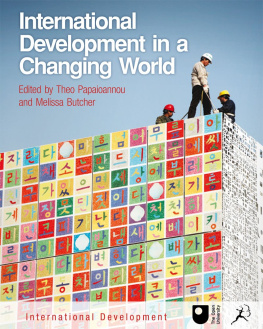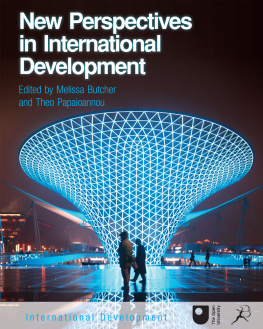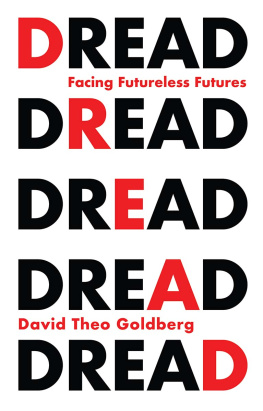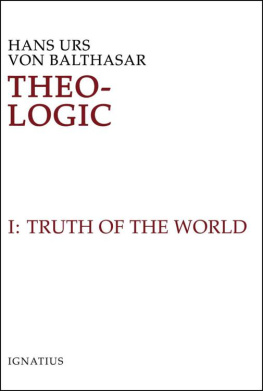Copyright notice
Published by
Bloomsbury Academic
an imprint of Bloomsbury Publishing Plc
50 Bedford Square
London WC1B 3DP
United Kingdom
and
175 Fifth Avenue
New York
NY10010
USA
www.bloomsburyacademic.com
In association with
The Open University
Walton Hall, Milton Keynes
MK7 6AA
United Kingdom
First published 2013
Copyright 2013 The Open University
All rights reserved. No part of this publication may be reproduced, stored in a retrieval system, transmitted or utilised in any form or by any means, electronic, mechanical, photocopying, recording or otherwise, without written permission from the publisher.
Edited and designed by The Open University.
Printed and bound in the United Kingdom by Latimer Trend and Company Ltd, Plymouth.
CIP records for this book are available from the British Library and the Library of Congress.
ISBN 978-1-78093-234-7 (hardback)
ISBN 978-1-78093-237-8 (paperback)
ISBN 978-1-78093-235-4 (Epub eBook)
ISBN 978-1-78093-236-1 (PDF eBook)
1.1
Cover image Copyright 2013 The Open University.
International Development
This book forms part of the series International Development published by Bloomsbury Academic in association with The Open University. The two books in the series are:
International Development in a Changing World
(edited by Theo Papaioannou and Melissa Butcher)
ISBN 978-1-78093-234-7 (hardback)
ISBN 978-1-78093-237-8 (paperback)
ISBN 978-1-78093-235-4 (Epub eBook)
ISBN 978-1-78093-236-1 (PDF eBook)
New Perspectives in International Development
(edited by Melissa Butcher and Theo Papaioannou)
ISBN 978-1-78093-243-9 (hardback)
ISBN 978-1-78093-251-4 (paperback)
ISBN 978-1-78093-248-4 (Epub eBook)
ISBN 978-1-78093-249-1 (PDF eBook)
This publication forms part of the Open University module
TD223 International development: making sense of a changing world. Details of this and other Open University modules can be obtained from the Student Registration and Enquiry Service, The Open University, PO Box 197, Milton Keynes MK7 6BJ, United Kingdom (tel. +44 (0)845 300 60 90,
email general-enquiries@open.ac.uk).
www.open.ac.uk
Introduction
Theo Papaioannou and Mellissa Butcher
Welcome to International Development in a Changing World, the first volume of a companion text book to the Open University module TD223 International development: making sense of a changing world. This book will introduce you to some of the key issues, debates and ideas about development and international politics in the 21st century. The following chapters focus on the contested concepts of development, poverty, inequality and livelihood, and examine the emergence of new powers that pose challenges to the existing system of international relations. A key thread throughout the book is the development of an understanding of the historical and contemporary make-up of the international system and its relationship to development as a process of economic and social transformation. In examining development as a process of change, we locate it within broader themes, including the examination of power relations, ideas around human agency, and the interaction between different scales of development, local, national, international and transnational. You will see that these different themes of history, power, agency and scale run throughout the book. Without them, development cannot be adequately understood as a complex process of interaction.
With this focus on interaction, the book is premised on an understanding of development as relational, that is, it is both process and practice that depends on not only an interaction between people but also between people and institutions such as governments and non-governmental organizations. You will also see interaction between different academic disciplines, incorporating theories and tools from social sciences and development studies, to provide a more holistic understanding of the social, economic and political transformations involved. Every subject has its own language with a vocabulary of terms (which we call concepts) that are used to engage with, describe, analyse and interpret the subject. Development is no different and the book is designed to introduce you to its vocabulary. Learning any language becomes easier with practice, although if you have a social science background you will already be familiar with some of the language of development introduced here. If you come from a natural science or technological background, you may need to be a bit more patient, although theres no need to feel daunted. In order to help you with the vocabulary and language of development, we have produced a glossary that is located at the end of this book, key terms are highlighted in the text in bold.
The theoretical concepts of development discussed in the following chapters provide general and normative explanations about how social transformations and deliberative human actions do and should occur, informing policy and practice. It is important to bear in mind that all theories are context dependent and therefore cannot be understood in abstraction from the concrete relations of history, power, agency and scale. Therefore, chapters move from the theoretical to also, in a series of case studies, look closely at the deliberate actions of people to improve their livelihoods, communities and societies.
Similarly, as you read through International Development in a Changing World you will come across many activities that give you an opportunity to apply the theories you read about to real world examples. These activities are of three kinds:
- Activities that allow you to check particular skills. For example, checking that you can interpret numerical data about poverty and inequality that is presented in graphic form; or identifying the main points made in a quotation.
- Activities that ask you to check your understanding of a topic or concept, or to relate that understanding to your own experience and prior knowledge. Often such activities will ask you to make notes which can become the basis of personal and critical reflection. International development is, after all, inherently personal as well.
- Activities that ask you to critically engage in a hypothetical discussion about a development idea, debate or issue for which there is no clear right answer, only arguments one way or the other. In such activities you are an active part of the story or argument, and can take ownership of it.
These different kinds of activity start from the basic assumption that you only really learn something when you have to teach it, even if that is teaching yourself. However, we follow these activities with a Discussion text of our own which can give you ideas to build on or compare your own thoughts with.
In terms of content, International Development in a Changing World begins with introducing international development, and contesting its theory and practice. Chapter 1 provides a foundation through exploring some of the different meanings of the word development, and addressing the question of why and how we should think about it as an inherently international issue. Chapter 2 offers insights into the key debates, theories and current research in the disciplines of international development and international studies, identifying new centres of power, state and non-state actors and new forms of organization and public action in the context of development, such as aid and humanitarian intervention.
Incorporating our concern with scale, the book focuses on the international system and world economy, using the key debates and theories of earlier chapters to examine contemporary shifts in the world system with the rise in power of countries such as China, India and Brazil. Where do these countries get their power from? What does this mean for the international system and for development? We explore these questions by looking in more detail at the history of the international system, factors such as colonization and the trajectories of China, India and Brazil. These three countries are not the only rising powers in evidence today. Some would, for example, add Russia or Indonesia, Turkey and Nigeria. However, we have chosen to focus on these three as they are the most clear-cut examples of emerging powers today from the global South and therefore overturning the old geography of the international order. More importantly, the aim is to appreciate the general point that powers rise and fall and that with these changes come different outcomes for the theory and practice of development. Chapter 3, in particular, focuses on China, beginning with the idea of this country as a new threat from the USAs point of view. Linking with the use of historical analysis, we examine how these rising powers fit into a longer history of the world economy. Chapter 4 continues to address the international scale of development but from a more political perspective. That is, how do rising powers reshape patterns of development internationally and reorient political relations between states? Chapter 5 shifts our viewpoint (partially at least) from the international to the state. Given that the power of emerging countries is founded on their tremendous economic growth in recent years we address the question of what has driven this. Chapter 6 shifts our spatial lens again and looks at how the rising powers work through, and also transform, certain geographical patterns including the organization of production, migration and environmental impacts. Two increasingly important transnational centres of power are highlighted in this and Chapter 7: namely, global cities and transnational corporations. Both sites have been key agents of interaction and change with differential linkages to states and uneven impacts on the well-being of people.











